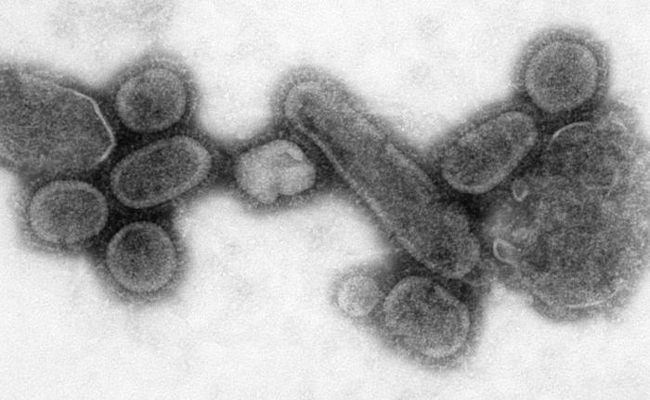The flu season can be deadly for thousands of elderly people each year. There is a critical public health need to improve the effectiveness of influenza vaccines. Seminal research results were recently released by Drs. Chris Miller, DVM, PhD, CNPRC Core Scientist, and Tim Carroll, PhD, Post-doctoral scholar at the Center for Comparative Medicine, demonstrating the success of two inoculations of Colby Pharmaceutical Company’s JVRS-100 adjuvant in combination with the 2006-2007 seasonal influenza virus vaccine, Fluzone. (Colby announcement here). The combination generated enhanced immunity and provided superior protection in elderly rhesus macaques, and protected these immunized primates against challenge with live influenza virus.
A resulting manuscript, “The effectiveness of influenza vaccination of elderly rhesus macaques is dramatically improved by addition of a cationic lipid/DNA adjuvant”, has now been published with an accompanying editorial entitled, “Towards improved influenza vaccines,” in the October, 2013 Advanced Access edition of the Journal of Infectious Diseases (JID). The editorial concludes that, “Overall, there is a great need to develop better influenza vaccines for the elderly and other vulnerable groups. The work described by Carroll et al provides another promising approach moving towards human efficacy trials.”
The studies were coordinated by Colby Pharmaceutical Company’s VP Research, Jeff Fairman, PhD, in collaboration with Drs. Miller and Carroll. Dr. Carroll works in Dr. Miller’s lab on eliciting broadly protective antibodies in the rhesus macaque model for human influenza. He also recently presented additional studies at the CNPRC, entitled, “A whole inactivated H3N2 Influenza A virus vaccine adjuvanted with a cationic lipid/DNA complex (CLDC) protects rhesus macaques from heterosubtypic H1N1 Influenza A virus challenge.”
“The data that was just published in JID clearly shows the remarkable enhancement of immunity from the JVRS-100 adjuvanted human influenza vaccine Fluzone, as measured by the antibody mediated anti-influenza immune responses. There was a dramatic decrease in virus infection in the JVRS-100 adjuvanted vaccine-inoculated macaques, and influenza viral replication was completely, or nearly completely, undetectable,” stated David B. Lewis MD, who is an immunologist at Stanford University and Chairman of the Colby Scientific Advisory Board.
It is remarkable that after a live flu virus challenge, only the JVRS-100 immunized monkeys had significantly lower levels of virus replication (p<0.01) relative to the control animals who were not immunized with JVRS-100. For example, peak levels of the flu virus were 100-fold lower in the respiratory tract secretions of elderly rhesus monkeys inoculated with Fluzone vaccine with the JVRS-100 added, as compared to the Fluzone vaccine alone monkeys.
Colby’s Chief Executive Officer, David Zarling, PhD, MBA, remarked that, “This newly published data from Colby’s recently completed NIH National Institute Allergy and Infectious Diseases (NIAID)-funded team is compelling and timely, and these well-controlled experiments clearly demonstrate that JVRS-100 adjuvanted flu vaccine is ready to go to the next level in clinical development.”
Other CNPRC scientists on this research project were Drs. Shannon Matzinger, Peter Barry, and Michael McChesney. Funding was provided by the National Institutes of Health, Public Health Service grants P51RR000169 (#OD011107) and U01AI074512.

